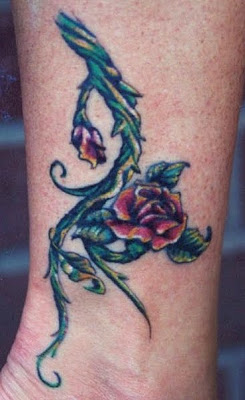Argento Tattoo | Mexican Tattoo Design


Now that is one freaky angel tattoo. Asia definitely has some of the coolest set of tattoos I’ve ever seen.
the largest tattoo gallery online. ideas and art pictures for tribal, celtic, butterfly, cross, fairy, flower, lower back, dragon, sun, star, dragonfly, armband tattoos and more ...


 Rose Tattoo is an Australian blues/hard rock band, led by Angry Anderson. Among their best known songs are "We Can't Be Beaten", "Scarred for Life", "Rock 'n' Roll Outlaw" and "Bad Boy for Love". Their first four albums were produced by Harry Vanda and George Young who also worked with AC/DC. Along with AC/DC and The Angels, Rose Tattoo helped establish an Australian rock sound in the 1970s that was copied around the world.
Rose Tattoo is an Australian blues/hard rock band, led by Angry Anderson. Among their best known songs are "We Can't Be Beaten", "Scarred for Life", "Rock 'n' Roll Outlaw" and "Bad Boy for Love". Their first four albums were produced by Harry Vanda and George Young who also worked with AC/DC. Along with AC/DC and The Angels, Rose Tattoo helped establish an Australian rock sound in the 1970s that was copied around the world. Anderson's onetime Buster Brown bassist Geordie Leach was recruited for Rose Tattoo's self-titled debut LP; after nearly three years of extensive touring, during which time Leach temporarily left the band to be replaced by Lobby Lloyde, they issued the follow-up, Assault and Battery, in 1981. During Lloyde's brief tenure with the band, they recorded a song, "Legalise Realise" that was released as a single in 1980, backed with a track by country singer Colin Paterson to publicise a campaign to legalise marihuana.
Anderson's onetime Buster Brown bassist Geordie Leach was recruited for Rose Tattoo's self-titled debut LP; after nearly three years of extensive touring, during which time Leach temporarily left the band to be replaced by Lobby Lloyde, they issued the follow-up, Assault and Battery, in 1981. During Lloyde's brief tenure with the band, they recorded a song, "Legalise Realise" that was released as a single in 1980, backed with a track by country singer Colin Paterson to publicise a campaign to legalise marihuana. After the US tour, Wells, Royal and Riley all left the group, with the remaining duo of Anderson and Leach recruiting guitarists Greg Jordan and John Meyer (from Perth progressive metal band Saracen) along with drummer Scott Johnston to record 1984's Southern Stars. Leach then exited to join Wells, Royal and Riley in the short-lived Illustrated Men. Anderson also took time out to play the character 'Ironbar' Bassey in the 1985 film Mad Max Beyond Thunderdome. That year Rose Tattoo, as Anderson, Johnston, Meyer, Andy Cichon (bass) and Tim Gaze (slide guitar), released a version of Steppenwolf's "Born to be Wild", their first release for Mushroom Records. Meyer left and Rose Tattoo recorded 1986's Beats From a Single Drum as a four piece
After the US tour, Wells, Royal and Riley all left the group, with the remaining duo of Anderson and Leach recruiting guitarists Greg Jordan and John Meyer (from Perth progressive metal band Saracen) along with drummer Scott Johnston to record 1984's Southern Stars. Leach then exited to join Wells, Royal and Riley in the short-lived Illustrated Men. Anderson also took time out to play the character 'Ironbar' Bassey in the 1985 film Mad Max Beyond Thunderdome. That year Rose Tattoo, as Anderson, Johnston, Meyer, Andy Cichon (bass) and Tim Gaze (slide guitar), released a version of Steppenwolf's "Born to be Wild", their first release for Mushroom Records. Meyer left and Rose Tattoo recorded 1986's Beats From a Single Drum as a four piece